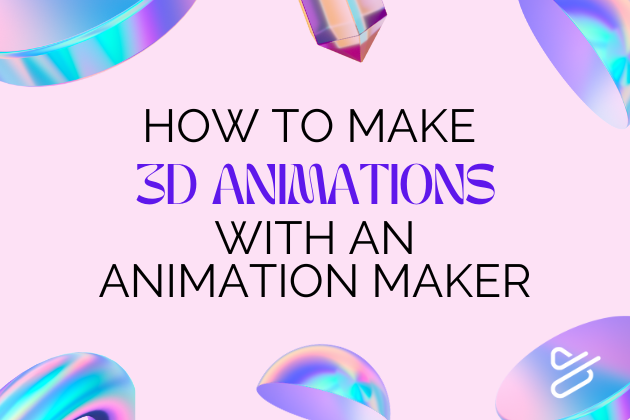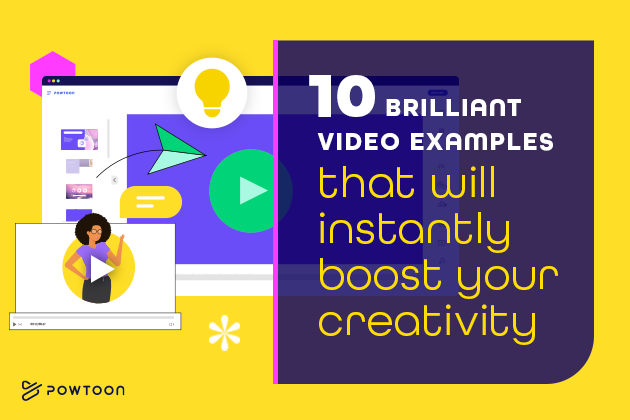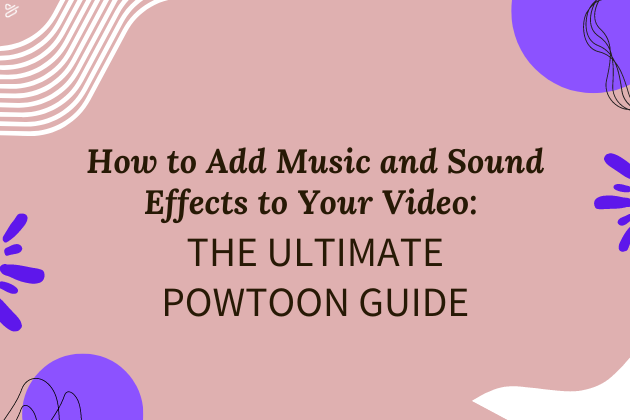
A Guide to Script Writing for Animated Videos
Animation may have existed for quite some time now, but thanks to tools like Powtoon’s animation maker, it’s now easier than ever for both individuals and organizations to animate their own video content, even if they have next to no experience doing so.
This may be why animation is playing an increasingly significant role in education, video marketing, internal communications, and more. In fact, the market for animated video production may double in size in the next few years.
Perhaps you’re a business owner with an idea for a piece of video content that could benefit from the dynamic visual qualities of animation. Or, maybe you’re an educator who believes animated lessons could help you capture (and keep!) the attention of your students.
No matter what your reason may be for creating animated content, along with using the right online animation maker to ensure the finished product is high-quality, you should also write a script early. Doing so can help you save time (and, therefore, money!) later on during the actual production phase.
Not sure where to start when writing the screenplay for a short animated film? This guide will help.
How to Write an Animation Script
Don’t worry if you’ve never written a script for an animated video before. These tips and insights will simplify what might otherwise seem to be an intimidating process. You can also automate the process using one of the best AI script writer tools—Powtoon Imagine. In this case, it also helps to know what is AI script writing.
What is an Animation Script?
Before you learn how to write an animation script, you should first appreciate the basic purpose a script serves.
A good script should:
- Describe the characters of your video, along with their actions
- Include all lines of dialogue that you will need to record
- Describe the settings your video will feature
- Break up your general story into individual scenes
Understanding the Basics of Script Writing for Animated Videos
Taking the following steps will help you begin planning your script with confidence, regardless of whether you’re a seasoned scriptwriter or a newbie:
- Define your target audience and the purpose of your video. This will help you determine its overall tone and length. For example, if you’re creating an animated video to upload to social media and share with a young audience, you might aim to create a relatively short video with a fun or casual vibe. On the other hand, if your viewer is likely to be a client, you want to ensure your video conveys a more professional tone.
- Research competitor videos similar to the ones you plan to produce. Make notes regarding what your competitors are doing right, as well as what they may be doing wrong.
- Read a few examples of screenplays to learn the basics of the format.
- Create an outline. To do so, list the main points your video will need to make, then brainstorm scene ideas that will allow your video to make these points as concisely as possible. This will also help you determine what types of characters may appear in your video and who the main character will be. Once you believe you have an idea of the types of scenes your video should include, make an outline in which you list the scenes in their intended order, along with a description of each scene’s basic elements (such as characters, setting, etc.)
Writing an Engaging Script for Animated Videos
Again, the key elements of the script for an animation video include the following:
- Scenes
- Descriptions of settings
- Descriptions of actions
- Characters
- Dialogue
When writing the first draft of your script, your goal should mainly be to ensure all these basic elements are in place. Once you’ve written a draft, review it to determine whether any scenes can be edited down or cut completely to reduce the length of the video. You may also find you need to add scenes if your current draft of the script fails to hit all the main points.
You can rewrite a second draft of your script once you’ve completed the first one. The purpose of this rewrite is to make sure your finished animated movie engages an audience. To achieve this goal when writing your second draft, you may:
- Incorporate humor (if doing so is right for the tone of your video).
- Add an element of suspense.
- Use storytelling techniques to forge an emotional connection with viewers.
- In moments when characters may be describing complex ideas, consider adding examples to illustrate key points.
Polishing the Animated Video Script
You may need to write one final draft of your script before you’re ready to rev up the animation maker and move into the production phase. When writing your last draft, you should:
- Carefully proofread the script for errors that could confuse an actor when recording dialogue, confuse a director when animating the video, etc.
- Cut unnecessary words, vary sentence length/structure, and use more impactful verbs to make the script more powerful.
- Include a call-to-action that encourages an audience member to take some sort of desired action (such as buying a product or signing up for a service) that corresponds with the purpose of the video.
Additionally, keep in mind that screenwriting is among the most difficult filmmaking skills to master. You should by no means abandon your plans if you still don’t feel you know how to write an animation script after applying the tips here to your first attempt. If you consistently practice, you will eventually develop the skills to write scripts that impress you and your audience.
Create Animated Content Easily With Powtoon’s Animation Maker
Featuring animated templates and an intuitive drag-and-drop interface, Powtoon’s animated video maker helps you create high-quality 2D animation and 3D animation affordably and easily. It’s like having access to your own full animation studio on your computer. To learn more about what this tool can do for you, sign up today!







